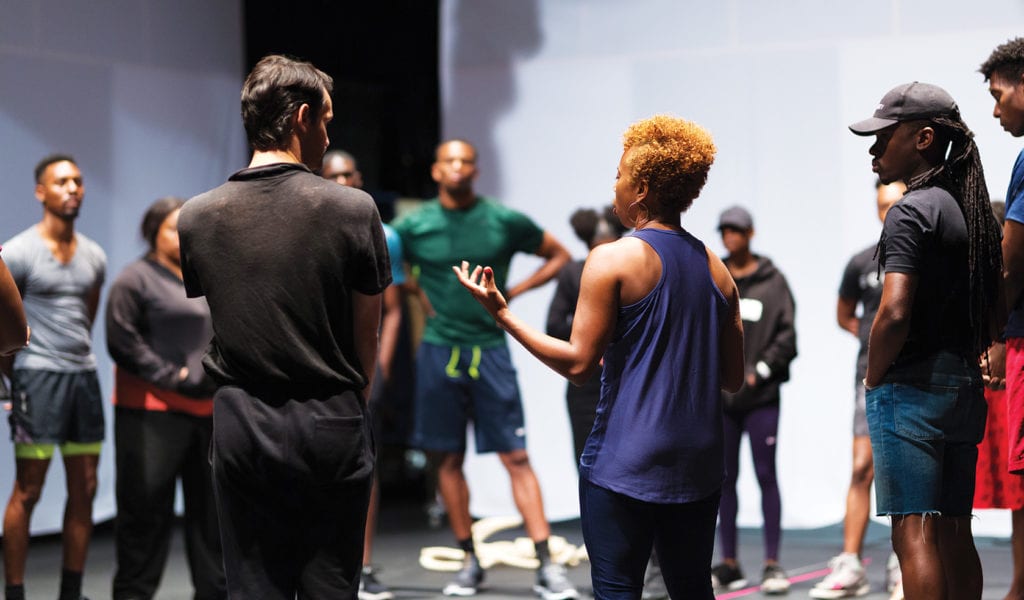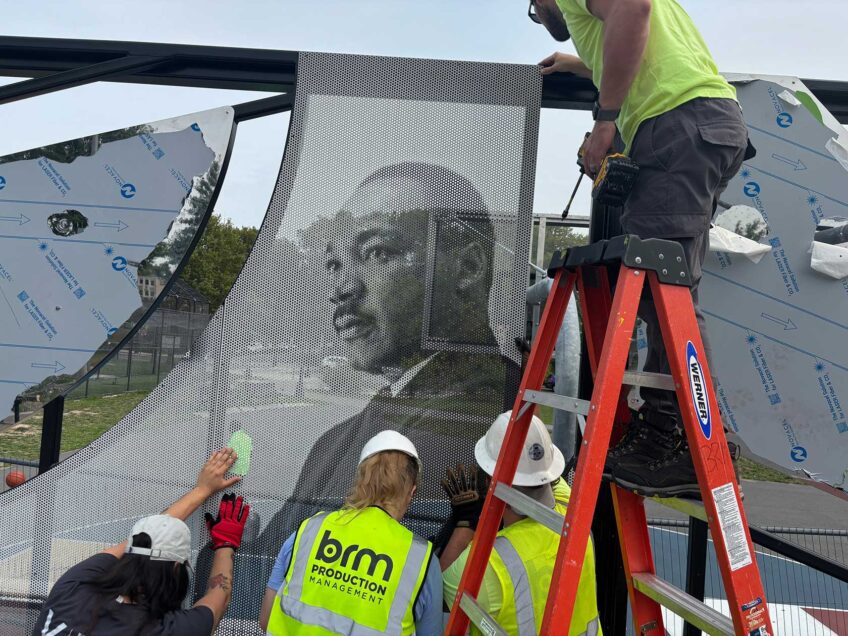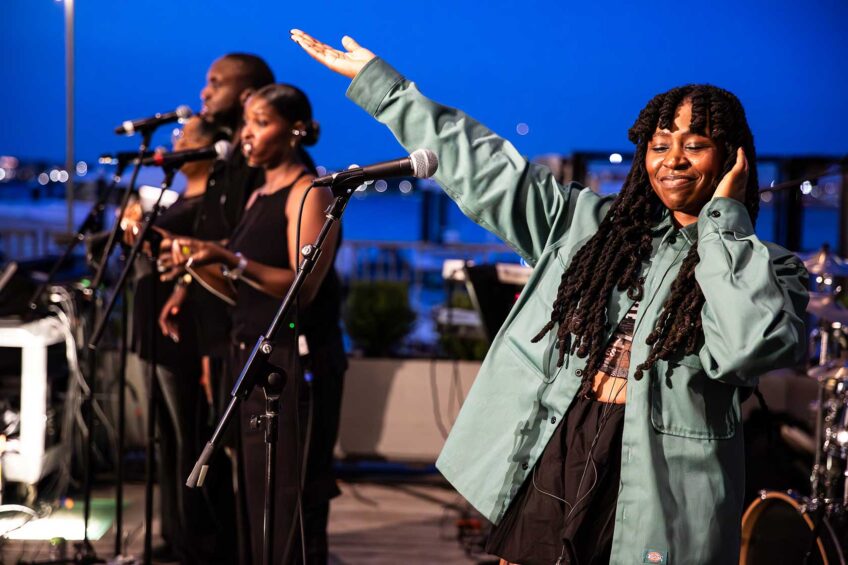‘The Black Clown’ musical adaptation will premiere next week
A.R.T. will debut world premiere musical adaptation of Langston Hughes poem

August 31-September 23 the American Repertory Theatre (A.R.T.) will host the world premiere of “The Black Clown,” a musical adaptation of Langston Hughes’s poem of the same name. Adapted by the powerful artistic duo Davóne Tines and Michael Schachter of the Run AMOC! Festival, the production features a 12 person all-black cast and an array of black music from spirituals to contemporary beats.

Costume designer Carlos Soto supervising the costume fitting of actress Sumayya Ali. Photo: Rhea Bennett
“The challenge but also the joy of the project has been in realizing the instructions Hughes left in the text,” says Tines. A.R.T. has a copy of the poem on their website which illustrates the very specific stage instructions Hughes wrote in beside each line. The 1931 poem “The Black Clown” was part of a larger series and was meant for dramatic recitation. Tines and Schachter had the immense responsibility of staying true to a great artist while performing the poem in a completely new way.
Mood music
Though the poem was written in 1931 during the Harlem Renaissance, it touches on quite a bit of black history and discusses an oppressive system that remains in place today. “There are many different musical styles represented in part because they better illustrate times and places where the piece leads us,” says Tines. Two spirituals included, “Nobody Knows the Trouble I’ve Had,” and “Sometimes I Feel Like a Motherless Child,” were specifically referenced in Hughes’ notes. Other times his notes are more general, “melancholy jazz,” or “gay, martial music.”
Other styles and songs were born through emotion. Tines says, “As a black man myself I thought ‘this can’t be esoteric, it has to be ecstatic joy’ and how that exists in the black community is gospel music. That resulted in a gospel number.”
Though the poem, and the production, deals with many challenging themes and moments in black history, Tines says the show has many lighthearted moments as well. Indeed, the poem ends with the protagonist, formerly dressed as a clown, shedding his silly costume to take his place as a man, not a character.

Associate Music Director Joelle Lamarre, Music Director Jaret Landon, and Director Zach Winokur watching rehearsal of “The Black Clown.” Photo: Maggie Hall
Tines sees the production as both instructive for how to be inclusive of oppressed groups, and a celebration of the powerful African American spirit. Though the poem specifically discusses the struggles of the black population, Tines says it applies to all who have been marginalized. “An aim of the poem is to claim humanity for someone who has experienced oppression. Hughes has given us a guidebook to acknowledge people as equal to us.”







